Rigid Core vs. Flexible Core Luxury Vinyl
Table of Contents
Luxury vinyl flooring is changing the game in modern home design—offering the perfect blend of style, durability, and affordability. But with two distinct types to choose from rigid core and flexible luxury vinyl planks—how do you know which one is right for your space?
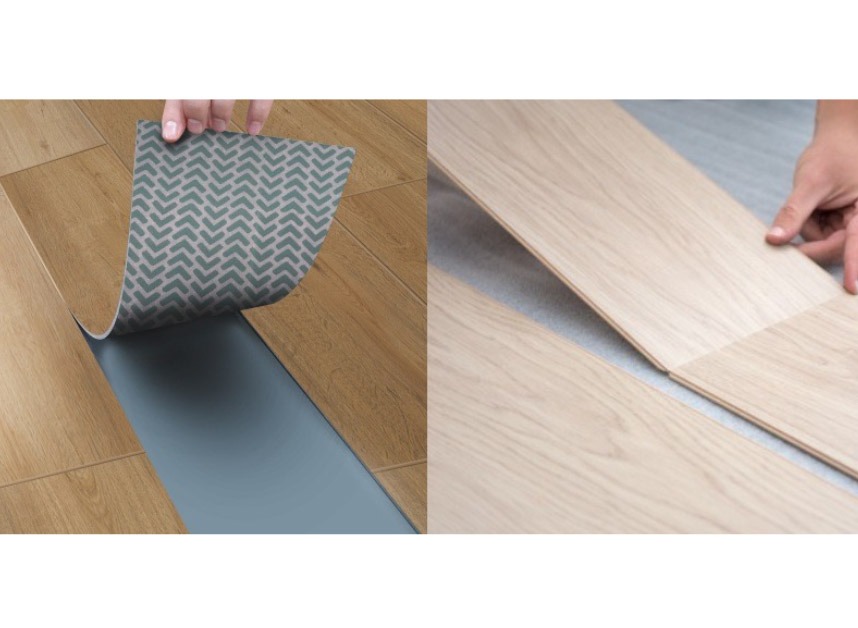
Both options mimic the look of natural materials like hardwood and stone while providing water resistance, easy maintenance, and long-lasting performance. Whether you're upgrading your floors for aesthetics, practicality, or both, selecting the right type makes all the difference.
The choice isn’t just about flexibility; it impacts installation, comfort underfoot, durability, and even performance in high-moisture or high-traffic areas.
This comprehensive guide will walk you through everything you need to know about rigid vinyl vs. flexible luxury vinyl, helping you make an informed decision that aligns with your specific requirements and ensures long-term satisfaction with your flooring investment.
Understanding Vinyl Flooring Or Luxury Vinyl Planks
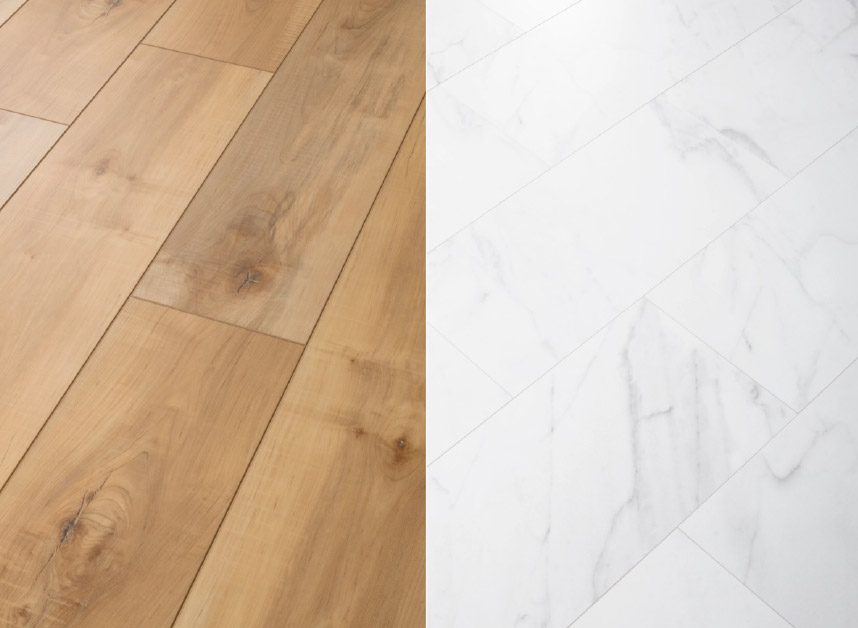
Vinyl flooring has come a long way since its introduction to the market. Modern luxury vinyl is engineered to provide exceptional performance while mimicking the look of natural materials like wood and stone. At its core, vinyl flooring is made from polyvinyl chloride (PVC), a synthetic material known for its resilience and water resistance. The technology behind luxury vinyl has evolved significantly, resulting in products that offer impressive durability, ease of maintenance, and realistic visual appeal.
Luxury vinyl comes in two primary formats: luxury vinyl planks (LVP) and luxury vinyl tile (LVT). As the names suggest, LVP is designed to resemble hardwood planks, while LVT mimics the appearance of ceramic or stone tile. Both formats are available in rigid core and flexible varieties, each with its own set of characteristics that make it suitable for different applications.
What Is Rigid Core Vinyl Flooring?
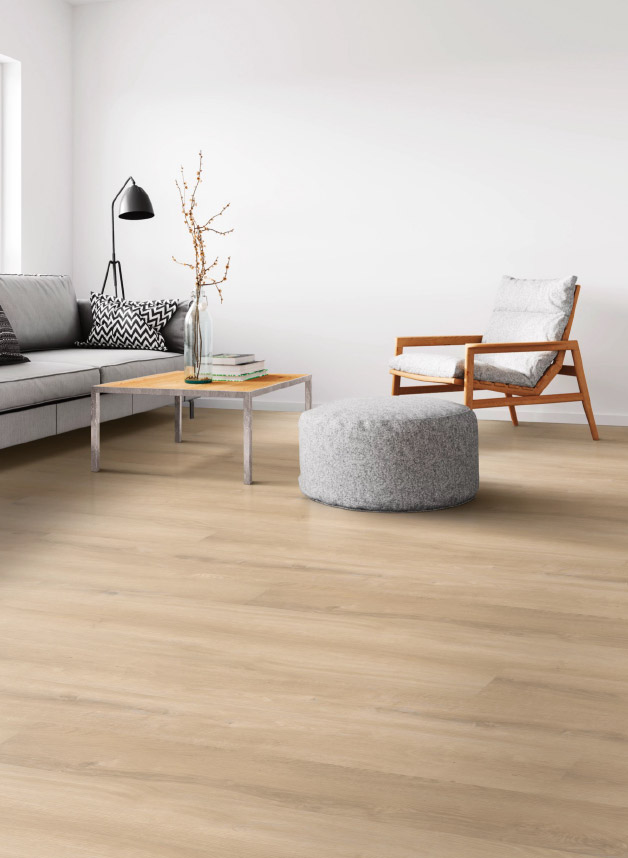
Rigid core vinyl flooring represents the newer generation of luxury vinyl products, characterized by a dense, solid core layer that provides enhanced stability and strength. This innovative flooring solution combines the water-resistant properties of traditional vinyl with improved dimensional stability and dent resistance.
The rigid core layer is typically made from a composite material such as Stone Plastic Composite (SPC) or Wood Plastic Composite (WPC), which gives the flooring its distinctive rigidity and structural integrity:
- SPC (Stone Plastic Composite): Known for its superior durability, SPC flooring has a high-density core that resists dents, scratches, and wear. It’s an excellent option for areas with heavy furniture, rolling chairs, or fluctuating temperatures.
- WPC (Wood Plastic Composite): Offers a slightly softer feel underfoot while maintaining water resistance, making it great for living rooms, bedrooms, and quieter spaces.
This type of rigid vinyl planks maintains its shape and integrity even under significant pressure, making it ideal for high-traffic areas where furniture and heavy foot traffic are common.
What Is Flexible Luxury Vinyl Flooring?
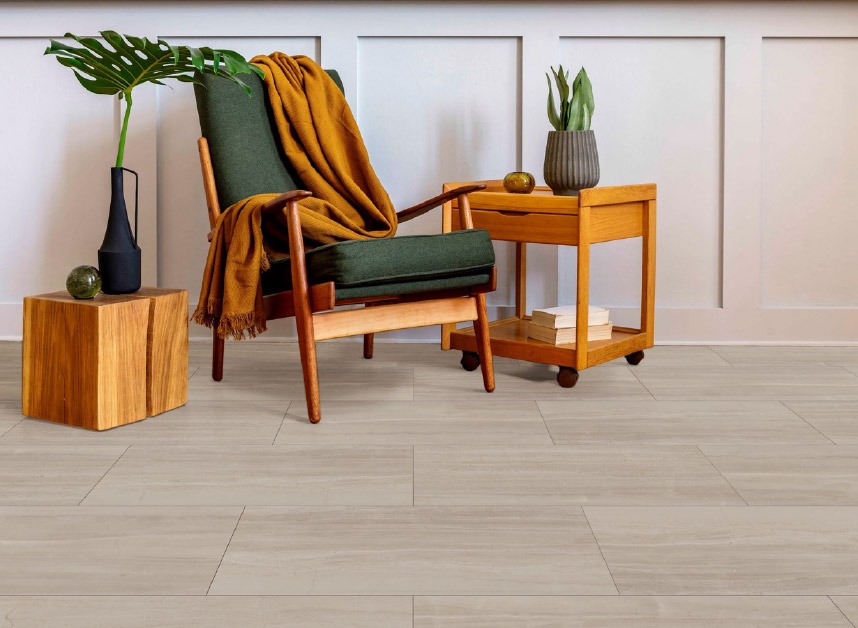
Flexible LVT (Luxury Vinyl Tile) represents the traditional form of vinyl flooring that has been around for decades. Unlike its rigid counterpart, flexible luxury vinyl planks are designed with more pliability, allowing them to conform more readily to the subfloor beneath.
Key Features of Flexible Vinyl Flooring:
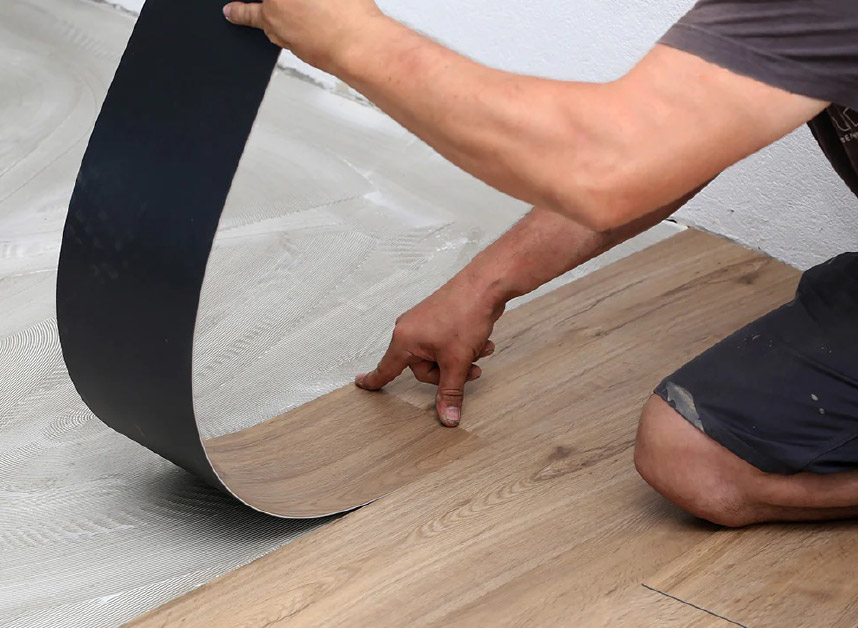
- Softer, More Comfortable Underfoot – The flexible nature of LVT provides a slightly cushioned feel, making it easier on joints and feet, especially in areas where you stand for long periods (like kitchens).
- Ideal for Uneven Subfloors – Because it’s more bendable, flexible vinyl can adapt to minor imperfections in the subfloor without requiring extensive prep work.
- Traditional PVC Core Construction – Unlike rigid core options, flexible LVT is made from multiple layers of PVC, giving it its characteristic pliability.
- Glue-Down Installation – Most flexible luxury vinyl planks require adhesive installation, making them a more permanent, stable flooring choice.
Many homeowners choose flexible vinyl flooring for its comfort, affordability, and adaptability, especially in spaces where subfloor imperfections exist or where a softer feel is preferred. If you’re looking for a cost-effective, comfortable, and traditional luxury vinyl flooring solution, flexible LVT could be the right fit.
Differences Between Rigid Core and Flexible Core
The differences between rigid core and flexible luxury vinyl extend far beyond their physical flexibility. One of the most significant distinctions lies in their structural composition.
1.) Structure & Stability: The Core Matters
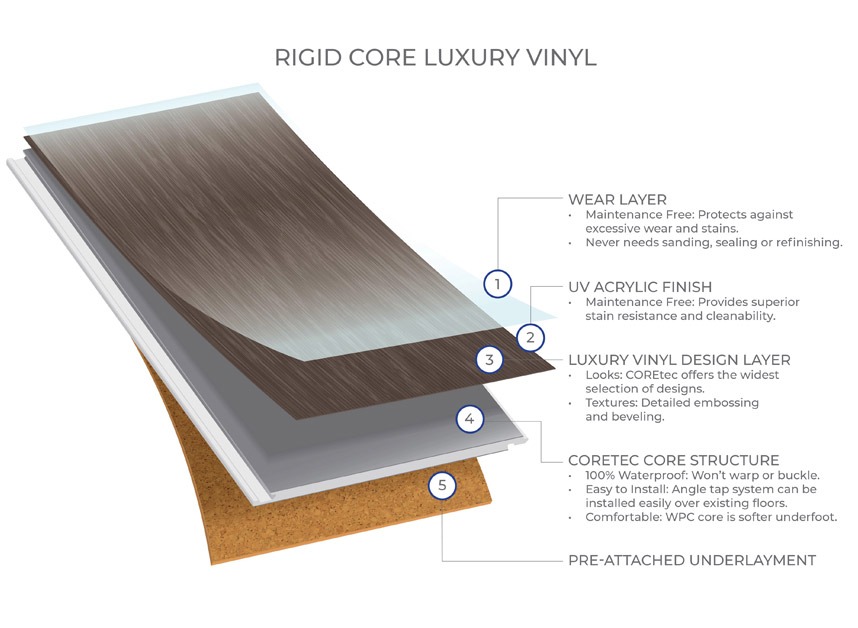
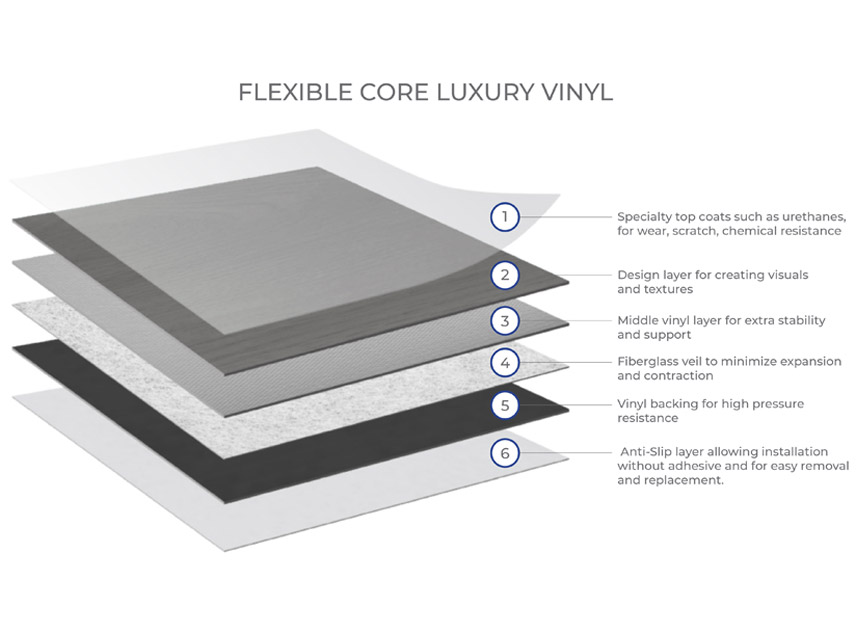
The biggest difference between these two flooring types comes down to what’s inside.
- Rigid Core Vinyl has a dense composite core—either SPC (Stone Plastic Composite) or WPC (Wood Plastic Composite)—which makes it more stable, dent-resistant, and able to handle temperature changes without expanding or contracting.
- Flexible LVT, on the other hand, is made from multiple layers of PVC without that dense core. This makes it more adaptable but also more prone to slight movement when exposed /to temperature fluctuations.
If your space has big temperature swings (like sunrooms or basements), rigid core is the safer bet.
2.) Installation: DIY-Friendly vs. Professional Help Needed
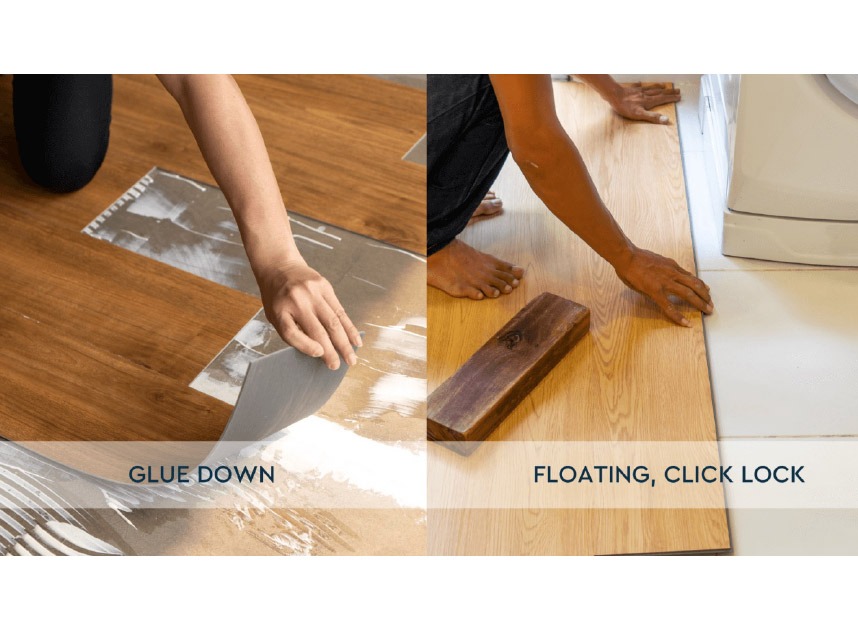
- Rigid Core Vinyl is a dream for DIYers. It usually comes with a click-lock system, meaning you can snap the planks together and float them over most existing floors—no glue, no stress, no major subfloor prep.
- Flexible LVT, on the other hand, usually needs to be glued down, which means more work, more prep, and often a professional installer to make sure it’s done right.
If you want to save time and money on installation, go for rigid core. If you’re okay with a more permanent, glue-down solution, flexible LVT works great.
3.) Where They Work Best
- Rigid Core: Ideal for high-traffic areas, rooms with heavy furniture, and moisture-prone spaces like bathrooms and kitchens. It keeps its shape even under pressure.
- Flexible LVT: Works well in spaces where comfort is key—like bedrooms and living rooms—because it’s softer underfoot and conforms more to minor subfloor imperfections.
If you need stability, durability, and easy installation, rigid core is the way to go. If you prefer a softer feel and more adaptability, flexible LVT is worth considering.
Durability and Longevity: Flexible and rigid
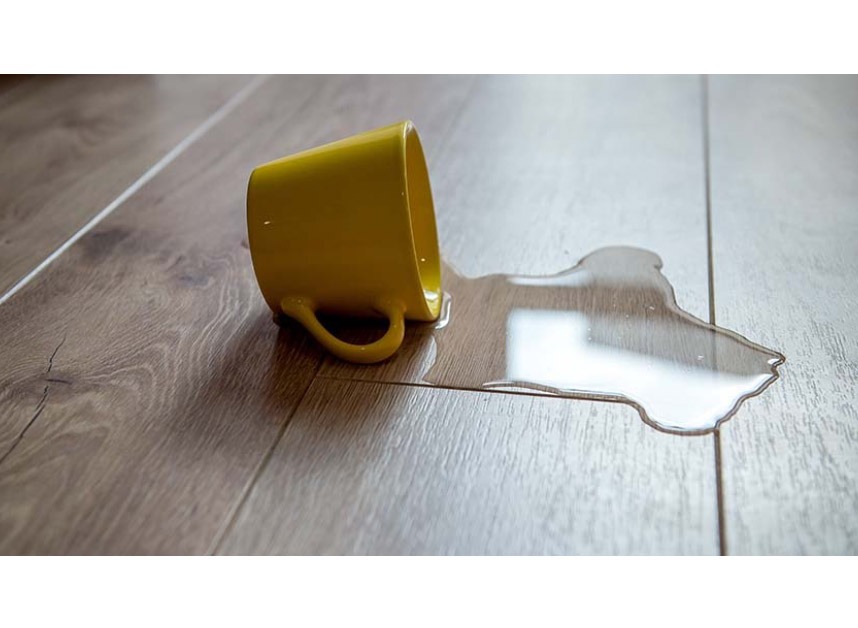
When investing in new flooring, durability and longevity are crucial considerations for most homeowners.
Rigid core vinyl flooring generally offers superior resistance to daily wear and tear, thanks to its dense composite core. This core provides exceptional stability and helps the flooring withstand heavy furniture and high foot traffic without denting or warping. The rigid vinyl planks are engineered to maintain their structural integrity over time, contributing to their impressive longevity in residential and commercial settings alike.
The wear layer thickness is another critical factor that influences durability in both rigid and flexible luxury vinyl. This transparent protective layer sits on top of the design layer and shields the flooring from scratches, stains, and general wear.
Both flooring types can feature various wear layer thicknesses, with thicker layers (measured in mils) providing enhanced protection and extended lifespan. For high-traffic areas or households with pets, opting for luxury vinyl with a substantial wear layer is advisable regardless of whether you choose rigid core or flexible options.
Waterproof Properties Best For Kitchens and Bathrooms
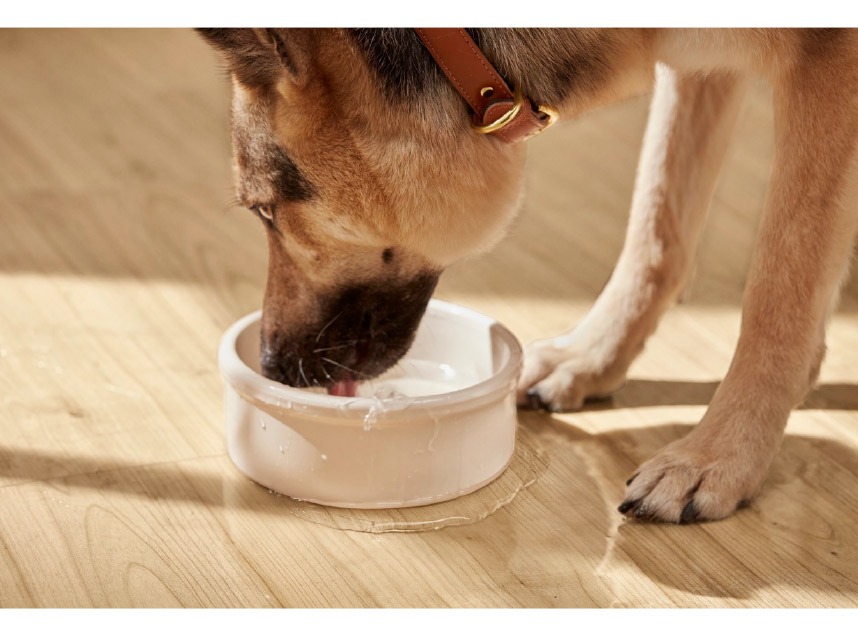
One of the most compelling advantages of luxury vinyl plank flooring is its waterproof nature, making it an excellent choice for moisture-prone areas like kitchens and bathrooms. Both rigid core vinyl flooring and flexible luxury vinyl planks offer exceptional water resistance, but there are subtle differences in how they perform in extremely wet conditions.
Rigid core options, particularly those with SPC core, provide superior waterproof characteristics due to their impermeable composite construction. The dense core prevents water from seeping through, even when exposed to standing water for extended periods.
Flexible LVT also offers impressive water resistance, but its installation method can impact its waterproof performance. When properly installed with waterproof adhesives and seam sealers, flexible luxury vinyl can provide excellent protection against moisture.
However, any gaps or imperfections in the installation can potentially allow water to penetrate beneath the flooring, potentially leading to issues with the subfloor. This makes the quality of installation particularly important when choosing flexible vinyl flooring for wet areas like bathrooms.
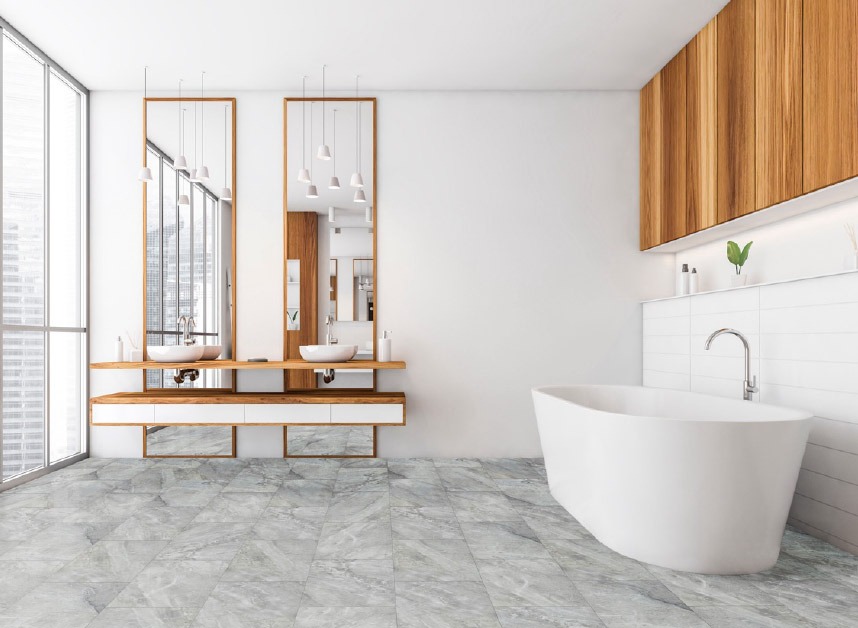
Comfort and Acoustics: Rigid Vinyl Flooring Vs Flexible Luxury Vinyl Planks
The feel underfoot varies significantly between rigid core and flexible luxury vinyl planks, influencing overall comfort in different ways. Especially if you spend a lot of time standing, walking, or even chasing kids around the house.
Which One Feels Better Underfoot?
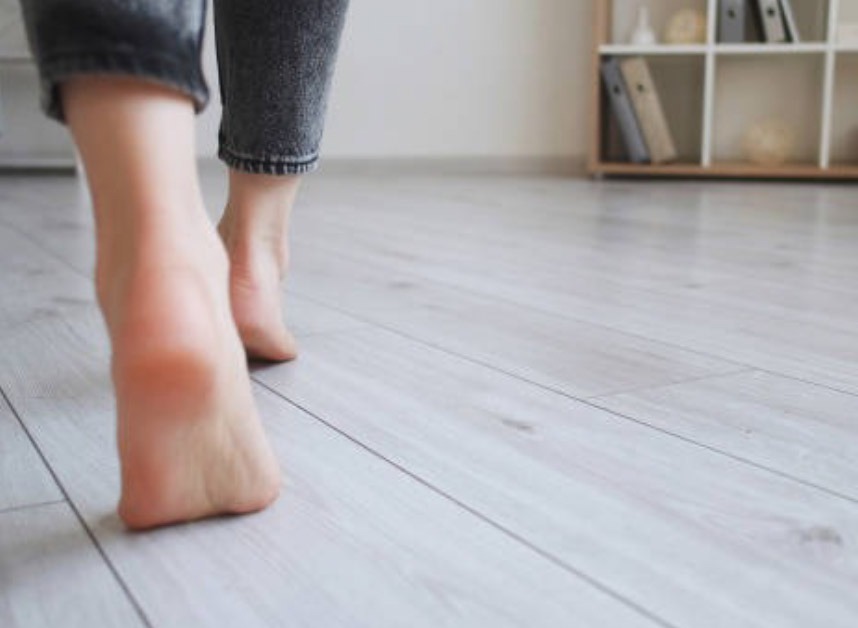
- Flexible Luxury Vinyl (LVT) offers a softer, more cushioned feel, making it easier on your feet and joints. If you spend a lot of time cooking in the kitchen or standing at a workstation, this is the comfier option.
- Rigid Core Vinyl, on the other hand, has a firmer surface—more like hardwood or tile. Some homeowners prefer this solid feel, as it mimics traditional flooring and adds a sense of stability underfoot.
Soundproofing: Which One is Quieter?
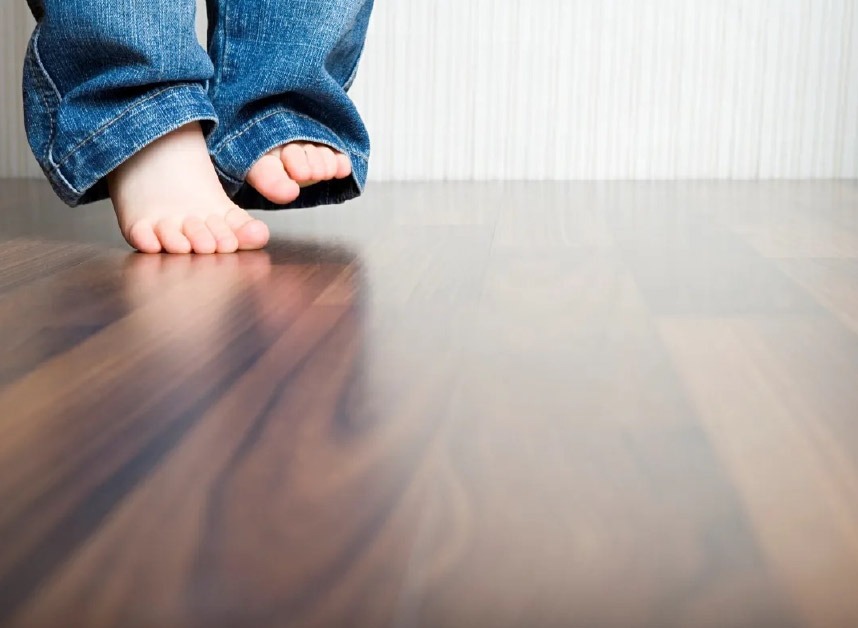
Rigid core vinyl (especially with integrated underlayment or cork backing) is great at absorbing sound. It helps reduce footstep noise and minimizes sound travel between floors, making it a top pick for apartments, condos, or upstairs rooms.
- Flexible LVT doesn’t have the same soundproofing benefits because it’s thinner and lacks a dense core. While it’s still quieter than laminate or hardwood, it doesn’t block noise as well as rigid options.
If you want a softer, more forgiving surface, a flexible LVT is your best bet. But if noise reduction is a priority, in a multi-level home or apartment then rigid core vinyl is the clear winner.
Installation Considerations: LVP Flooring and Flexible LVT
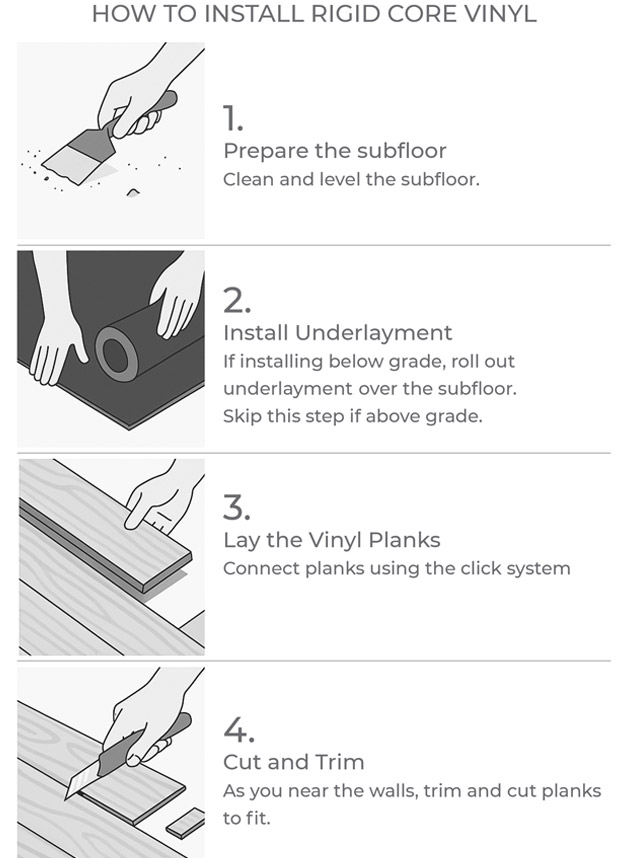
The installation process differs considerably between rigid core vinyl and flexible LVP flooring, which can significantly impact your overall project timeline and installation cost.
Rigid vinyl flooring is renowned for its easy to install nature, typically featuring click-lock systems that allow planks to snap together without adhesives. This flooring type can be installed as a floating floor over most existing surfaces, provided they're clean and relatively level.
The rigid structure allows it to bridge minor subfloor imperfections without telegraphing them to the surface, reducing the need for extensive subfloor preparation. For homeowners interested in DIY projects, rigid core vinyl flooring offers a straightforward installation process that doesn't require specialized tools or extensive experience.
In contrast, flexible luxury vinyl planks generally require adhesive installation, where the flooring is glued directly to the subfloor. This installation method demands meticulous subfloor preparation to ensure a perfectly smooth, clean, and dry surface.
Any imperfections in the subfloor will eventually show through the flexible vinyl, compromising both aesthetics and longevity. While professional installation is recommended for flexible LVT to achieve optimal results, the final outcome can provide a very secure, stable flooring solution when properly executed.
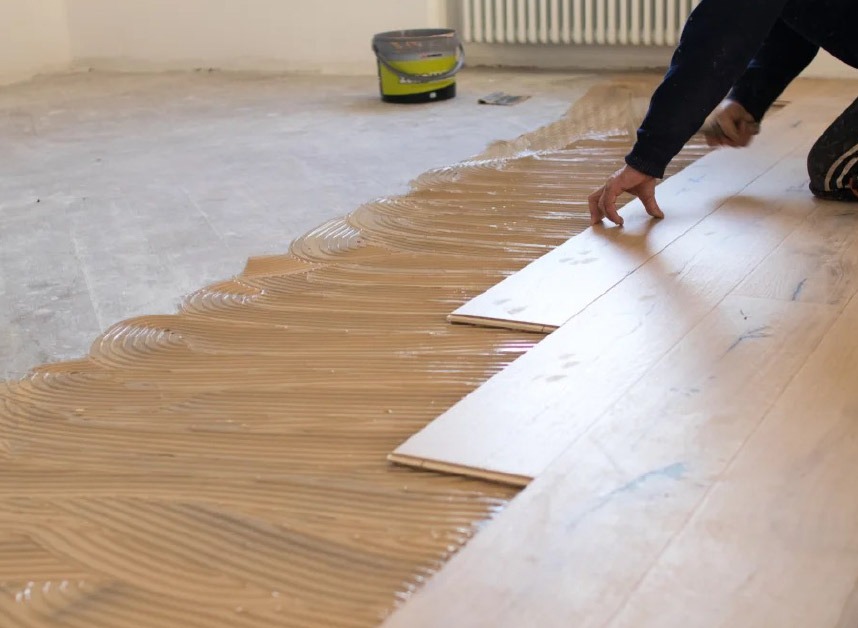
The decision between the two options often comes down to balancing installation complexity against specific performance requirements for your space. For a step-by-step guide on how to install luxury vinyl flooring, check out Carpet Exchange’s Flooring School on Luxury Vinyl Installation. This resource provides expert tips and insights to help you achieve a professional-quality finish.
Aesthetic Options and Design Versatility
Both rigid core and flexible vinyl flooring offer impressive design versatility, with styles that convincingly look like wood or natural stone. The printing technologies used in modern luxury vinyl create remarkably realistic visual effects, complete with authentic textures that mimic the grain patterns of hardwood flooring or the tactile surface of natural stone.
This attention to detail allows vinyl plank or tile to provide the aesthetic appeal of premium natural materials without their inherent drawbacks like susceptibility to water damage or high maintenance requirements.
The aesthetic differences between rigid vinyl vs flexible options are subtle but worth noting. Flexible luxury vinyl planks sometimes offer more authentic-feeling textures due to their pliable nature, which allows for deeper embossing patterns. Meanwhile, rigid core vinyl flooring often features more advanced printing technologies, resulting in sharper, more detailed visuals.
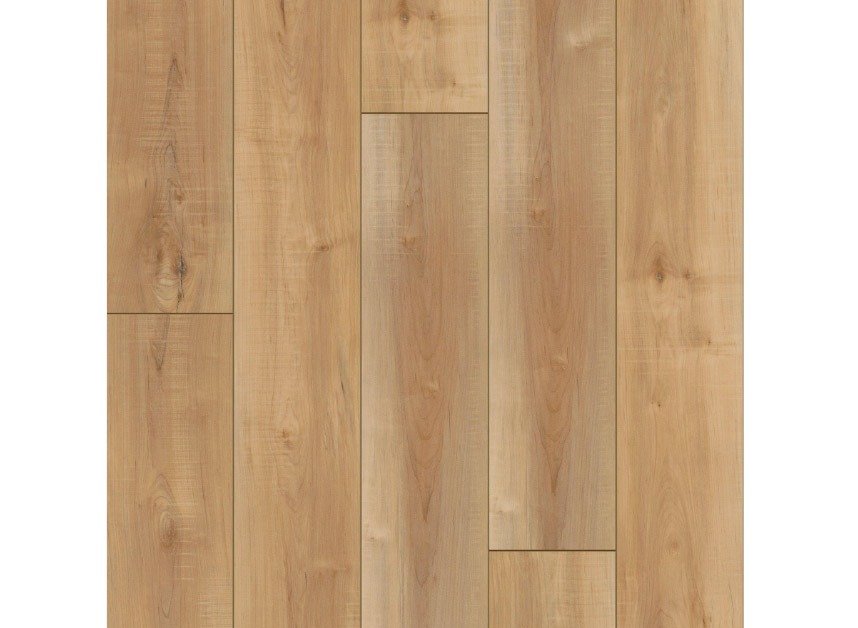
Both types are available in a vast array of colors, patterns, and styles, from traditional oak and maple looks to exotic wood species and contemporary concrete or marble designs. This diverse selection ensures that regardless of whether you choose rigid or flexible, you'll find options that complement your interior design vision.
Cost Comparison
When comparing the cost of rigid core vinyl flooring to flexible luxury vinyl planks, several factors come into play beyond the initial price tag. While rigid core flooring tends to have a higher upfront cost, flexible LVP can come with hidden expenses that affect the total project price.
1.) Upfront Cost: Which One Costs More?
- Rigid Core Vinyl (SPC/WPC): Typically more expensive per square foot due to its advanced core materials, durability, and manufacturing process.
- Flexible LVP: Generally cheaper per square foot, but that doesn’t always mean it’s the most budget-friendly option in the long run.
2.) Installation & Additional Costs
- Rigid Core: Often uses a click-lock floating installation, meaning it can be DIY-friendly and requires minimal subfloor prep—which helps save on labor costs.
- Flexible LVP: Usually requires a glue-down installation, meaning professional help is recommended. The added cost of adhesives, labor, and subfloor preparation can significantly increase the total investment.
3.) Long-Term Value: Durability vs. Price
- Rigid Core: More dent-resistant, waterproof, and long-lasting, making it a better long-term investment despite the higher initial cost.
- Flexible LVP: While initially cheaper, it may need replacing sooner due to wear and tear, temperature expansion, and potential subfloor imperfections.
Furthermore, the longevity factor must be considered; rigid core vinyl flooring typically offers extended durability and wear resistance, potentially providing better long-term value despite the higher initial cost. For budget-conscious consumers, balancing the upfront expenditure against long-term performance and maintenance requirements is essential when choosing between these two flooring types.
Recommended Applications: Choosing the Right Flooring
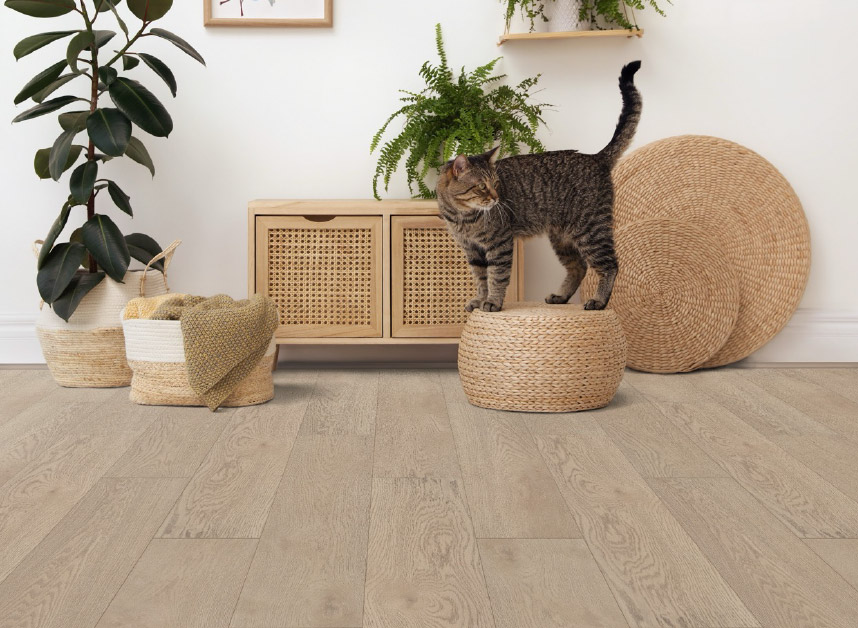
The right flooring choice depends largely on the specific requirements of different rooms and environments. Rigid core vinyl flooring excels in areas subject to temperature fluctuations, heavy furniture, and high foot traffic. The dimensional stability of rigid vinyl planks makes them particularly suitable for sunrooms, large open-plan spaces, and rooms with significant exposure to direct sunlight. The rigid core layer prevents the flooring from expanding or contracting due to temperature changes, eliminating the risk of buckling or gapping that can occur with less stable flooring types.
Flexible luxury vinyl planks may be the better option for certain specialized applications. Their conforming nature makes them ideal for spaces with complex layouts requiring numerous cuts and fits around architectural features. Additionally, the slightly softer feel underfoot can be preferable in areas where people stand for extended periods, such as kitchens.
Both rigid and flexible options perform excellently in moisture-prone environments like kitchens and bathrooms, though rigid core's superior dimensional stability often makes it the preferred choice for bathroom installations where standing water is more likely to occur.
Performance in Different Environments
Your environment plays a huge role in determining which type of luxury vinyl flooring will perform best in your home. Rigid core vinyl flooring shines in spaces with fluctuating temperatures and humidity levels, while flexible luxury vinyl works better in stable conditions.
When to Choose Rigid Core Vinyl
Rigid core vinyl is built for stability, making it a top choice for homes with temperature swings, like those with large windows, sunrooms, or areas exposed to seasonal changes. Thanks to its dense core, it resists expansion and contraction, meaning you won’t have to worry about warping, gapping, or buckling over time. If you're in a region with hot summers and cold winters, rigid core flooring will hold up much better.
When to Choose Flexible Luxury Vinyl
On the other hand, flexible luxury vinyl flooring works best in spaces with steady temperature and humidity levels. Because it's more adaptive, it needs a controlled environment to maintain its shape and performance over time. It’s a great option in indoor areas where sound absorption isn't a major concern and where you want a softer, more cushioned feel.
Which Is Better for Kitchens & Bathrooms?
Both rigid and flexible luxury vinyl are 100% waterproof, making them solid choices for moisture-prone areas like kitchens and bathrooms. However, rigid core vinyl has the edge when it comes to water resistance, thanks to its dense, waterproof core that prevents swelling or damage from standing water. If your flooring will see a lot of spills or heavy foot traffic, rigid core vinyl is your best bet.
Maintenance and Care
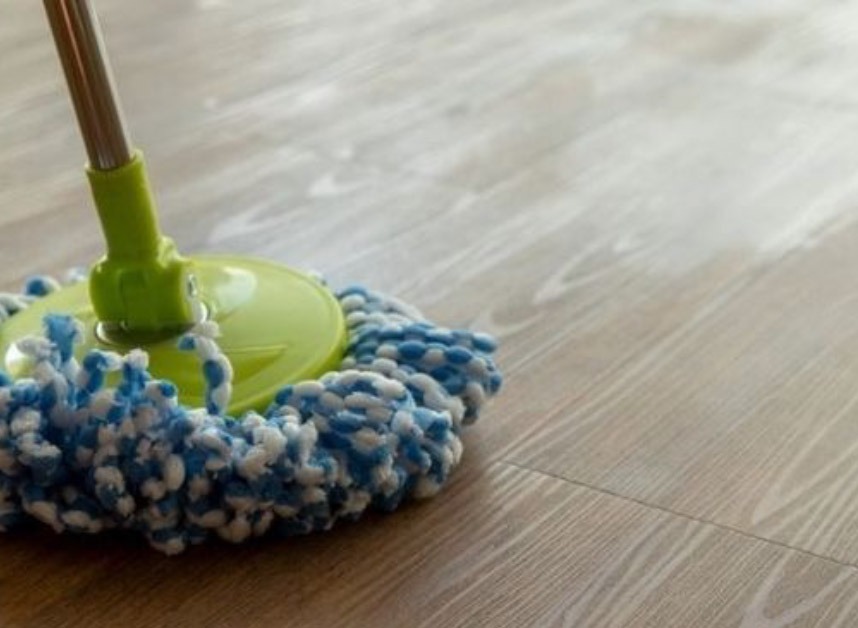
Maintaining the beauty and functionality of your luxury vinyl flooring is remarkably straightforward compared to traditional flooring materials like hardwood or natural stone. Both rigid core and flexible luxury vinyl planks are known for their easy care regimens, requiring only regular sweeping or vacuuming with a hard floor attachment and occasional damp mopping with a mild cleaner.
The wear layer on both flooring types protects against stains and spills, allowing for quick clean-up without the risk of permanent damage. This easy maintenance routine is one of the primary reasons why luxury vinyl has become increasingly popular among busy households seeking practical flooring solutions.
While the basic maintenance requirements are similar, there are subtle differences in long-term care considerations. Rigid vinyl flooring tends to be more forgiving of occasional maintenance lapses due to its durable construction and resistance to water penetration. The solid core provides excellent protection against moisture infiltration, even when exposed to standing water for extended periods.
Flexible luxury vinyl, while still highly water-resistant, may require more vigilant maintenance to prevent moisture from seeping through seams, particularly in installations where the adhesive bond has weakened over time. Both options, however, represent low-maintenance alternatives to traditional flooring materials, making them perfect flooring choices for contemporary lifestyles.
Sustainability Considerations
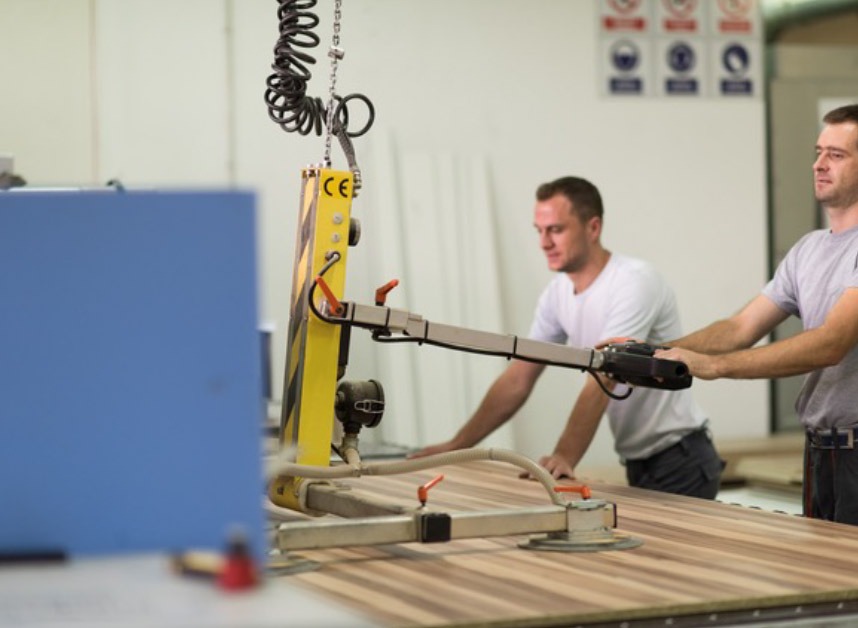
Environmental impact is becoming an increasingly important factor in flooring decisions for eco-conscious consumers. Both rigid core and flexible luxury vinyl contain PVC as their primary material, but advancements in manufacturing processes have led to more sustainable options within each category.
Some manufacturers now offer phthalate-free formulations and incorporate recycled content into their products, reducing the environmental footprint of vinyl flooring. Additionally, the durability and longevity of luxury vinyl mean fewer replacements over time, which can be considered a form of sustainability through reduced consumption.
When comparing the environmental aspects of rigid core vs. flexible options, several factors merit consideration. The composite core in rigid vinyl products often contains mineral fillers that may be sourced more sustainably than pure PVC.
Additionally, the click-lock installation typical of rigid core vinyl eliminates the need for adhesives, which can contain volatile organic compounds (VOCs) that contribute to indoor air pollution. For environmentally concerned consumers, researching manufacturers committed to sustainable practices and looking for third-party certifications like FloorScore® can help identify the most eco-friendly options in both rigid and flexible categories.
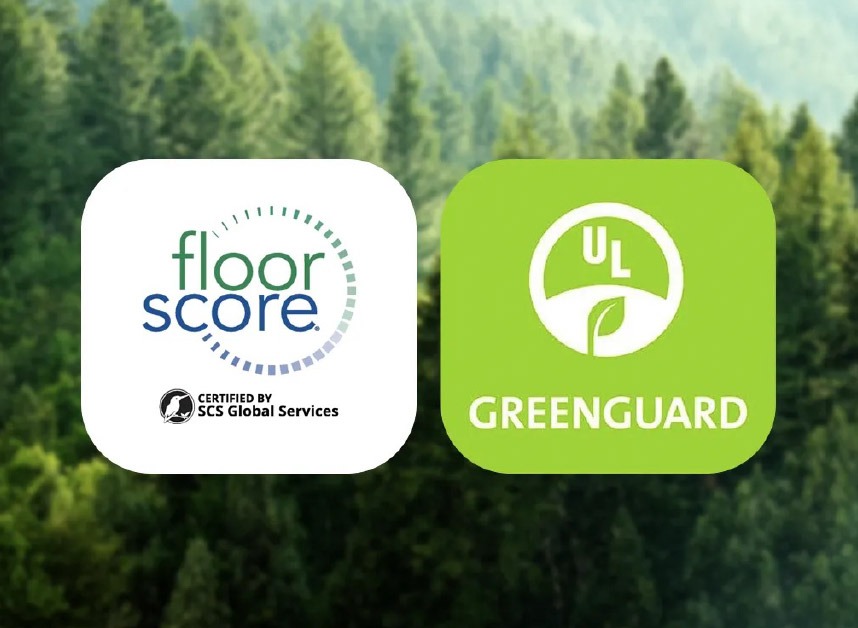
Recent Innovations in Luxury Vinyl
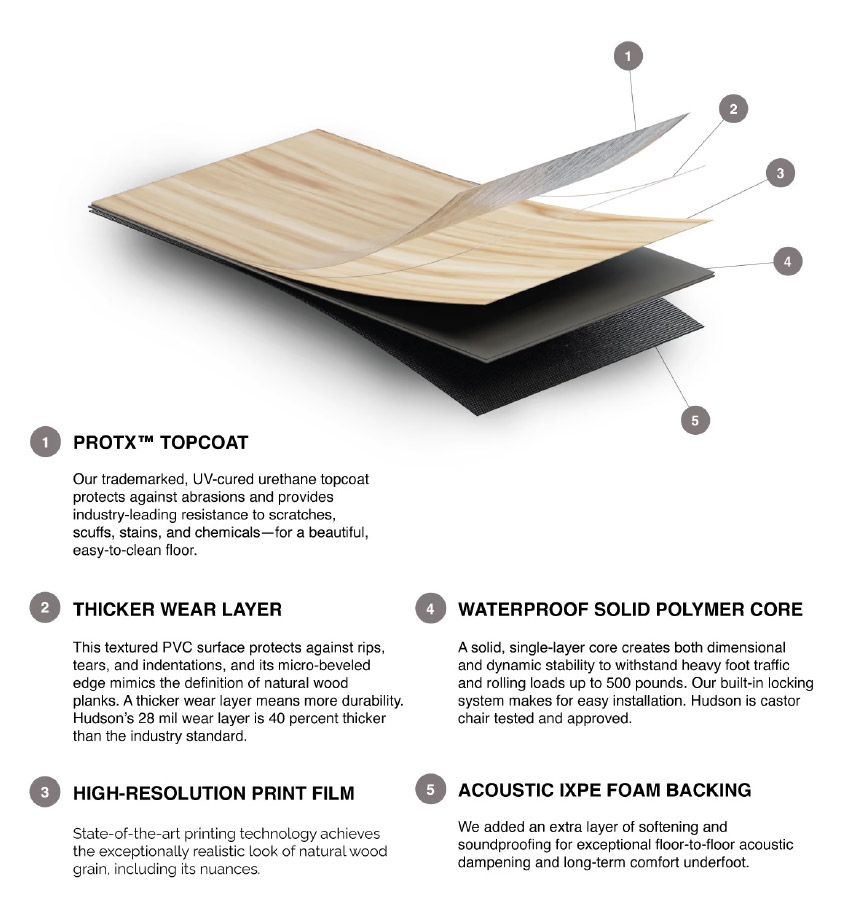
The flooring industry continues to innovate, with both rigid core and flexible luxury vinyl seeing significant advancements in recent years. According to the National Association of Home Builders (NAHB), luxury vinyl flooring continues to dominate the market, thanks to its affordability, durability, and stylish design options.
Rigid core technology has evolved to include multi-layer constructions that enhance performance characteristics like impact resistance, sound absorption, and dimensional stability.
Some cutting-edge rigid vinyl planks now feature specialized core materials that provide improved dent resistance while maintaining a comfortable feel underfoot. These innovations have solidified rigid core vinyl flooring as a leading choice for demanding residential and commercial applications.
Flexible LVT has also benefited from technological advancements, particularly in the areas of visual realism and installation methods. Enhanced printing techniques have resulted in more authentic-looking patterns that convincingly mimic natural materials, while improvements in wear layer technology have increased durability and stain resistance.
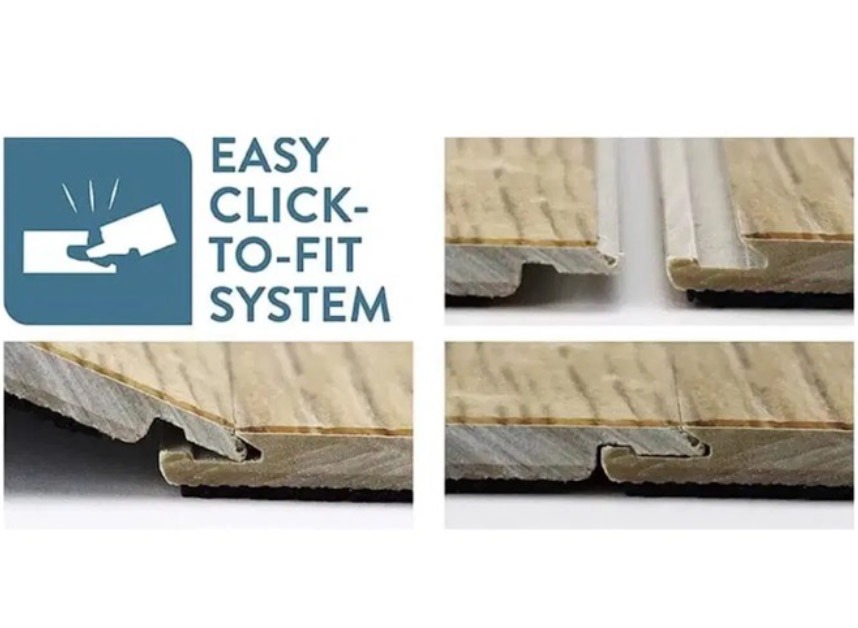
Some manufacturers have developed innovative adhesive systems that simplify installation while improving moisture resistance and bond strength. As both types of flooring continue to evolve, consumers benefit from an ever-expanding array of options that combine aesthetic appeal with practical performance features.
Making the Final Decision: Rigid Core vs. Flexible LVP
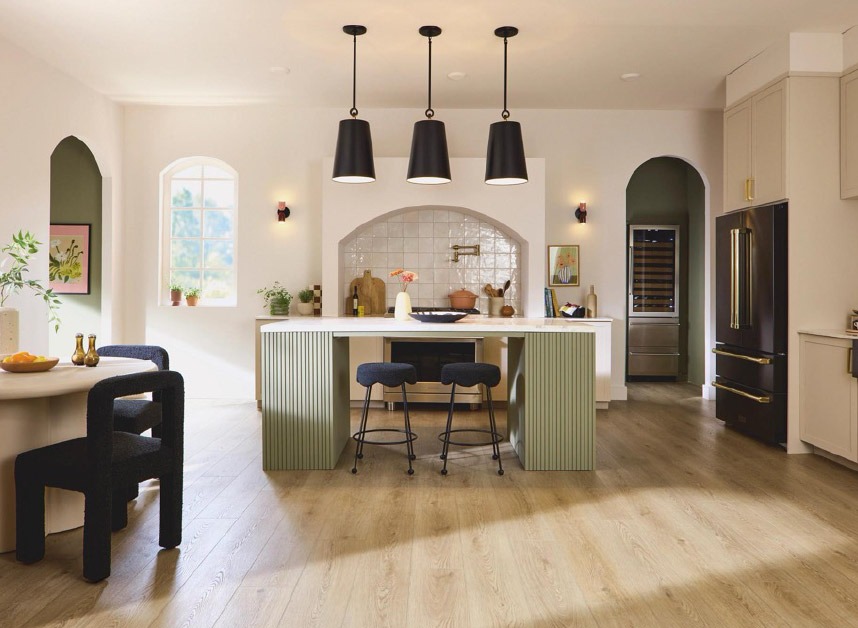
Choosing between rigid core and flexible luxury vinyl all comes down to what matters most to you. Each option has its strengths, so the best choice depends on your lifestyle, space, and flooring needs.
Go with Rigid Core Vinyl if you want:
- Maximum durability – Holds up against heavy furniture, dents, and daily wear.
- Easy, DIY-friendly installation – Click-lock planks make setup a breeze.
- Stability in changing environments – Handles temperature shifts and humidity fluctuations without expanding or warping.
- Superior water resistance – Ideal for high-traffic areas, kitchens, and bathrooms.
Go with Flexible Luxury Vinyl if you want:
- A softer, more cushioned feel underfoot – Great for standing long hours in kitchens.
- Better adaptability over uneven subfloors – No need for perfect leveling.
- A more permanent, adhesive-based installation – Provides a seamless, stable finish.
At the end of the day, both flooring options offer exceptional durability, water resistance, and aesthetic appeal. Your decision should focus on your specific space, comfort preferences, and how much effort you want to put into installation.
Conclusion
Both rigid core and flexible luxury vinyl offer exceptional durability, water resistance, and stunning aesthetics—all at a budget-friendly price compared to traditional hardwood or tile. The key is to choose the one that best fits your space, lifestyle, and long-term needs.
If you need a tough, stable, and waterproof floor that’s easy to install, rigid core is the way to go. If comfort, flexibility, and adaptability are your top priorities, flexible luxury vinyl is a great option.
Consult a flooring professional to assess your space and help you pick the perfect vinyl flooring for a home that’s both stylish and long-lasting.
Our team at Carpet Exchange is here to help! With expert guidance and a wide selection of high-quality luxury vinyl flooring, we’ll help you find the perfect option for a home that’s both stylish and long-lasting.
Visit us today to explore our collection and let our professionals guide you every step of the way!
